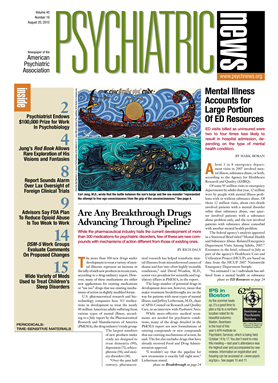A new Internet campaign designed to ease the transition from home to college is up and running just in time for start of the new academic year.
The campaign, titled “The Transition Year,” is the fruit of a recent collaboration between the American Psychiatric Foundation (APF) and the Jed Foundation.
The Web site at the center of the initiative features information designed to address proactively mental health problems that may arise among students.
“The pressure of college and a new environment can trigger issues lying beneath the surface,” said APF President Richard Harding, M.D., in a June press release announcing the initiative. “When unaddressed, mental health problems can lead to dangerous behaviors such as substance abuse or thoughts of suicide, which is the second leading cause of death among college students.”
Stress has a measureable impact on students' academic and social lives, according to one poll.
A survey conducted by MTV and the Associated Press in April and May 2009 among 2,240 undergraduate students from 40 randomly chosen colleges and universities across the United States found that 6 in 10 students reported feeling so stressed at some point in college that they couldn't get their work done on one or more occasions. More than half (53 percent) reported feeling so stressed that they didn't want to hang out with friends.
About 1 in 10 students reported signs of moderate to severe depression, according to the survey.
The Jed Foundation is a nonprofit organization established in 2000 by Donna and Phil Satow after they lost their son Jed to suicide. The foundation's goals are to promote mental health and prevent suicide among college students nationwide.
“The Transition Year” features sections for both parents and students, with links to information that should be useful for both groups.
Students can click on links to help them learn how to navigate course work successfully and what to expect from dorm life, for example. There is also information about the signs and symptoms of common mental illnesses such as depression, anxiety, alcohol and drug dependency and abuse, and attention deficit-hyperactivity/disorder. In addition, there are links for students who want to know about suicide prevention and how to seek help for mental health problems on campus.
A “links and resources” section on the site takes students and parents to other Web sites, such as that of Active Minds, a mental health advocacy group for college students that is now operating on more than 100 campuses.
A special guide for parents titled “Emotional Health and Your College Student” offers tips for parents on what to expect as their children adjust to life on campus and how to spot signs of emotional distress—personality or behavior changes that may indicate that their children are developing mental health problems.
The guide also features a section about how parents can help their children seek assistance on campus if the students are feeling overwhelmed or are starting to exhibit signs of a mental health problem.
In addition, the parents' guide urges parents of students diagnosed with a mental health condition before they begin college to establish contacts with the campus counseling center and other local support systems before making the transition to the college or university. The site emphasizes that this type of advanced planning allows campus counseling centers sufficient time to identify the right mental health clinician for each student to support him or her effectively throughout the college years.
“We hope [the guide] will help you smooth your own child's transition to college, and lay the groundwork for emotionally healthy and productive times for years to come,” stated Jed Foundation co-founder Donna Satow in the guide.

